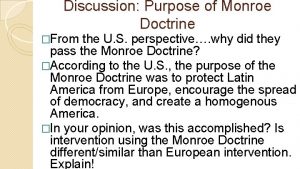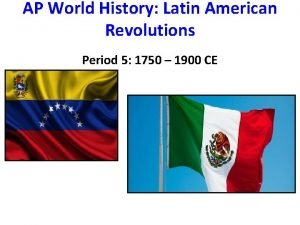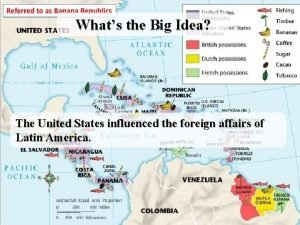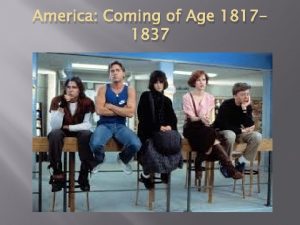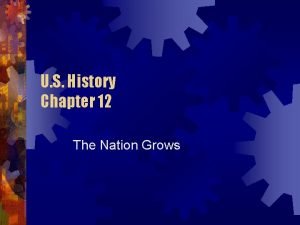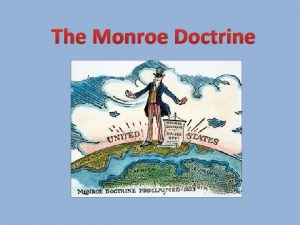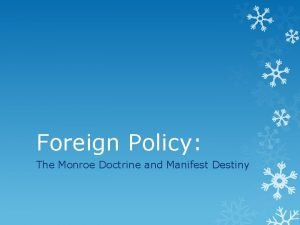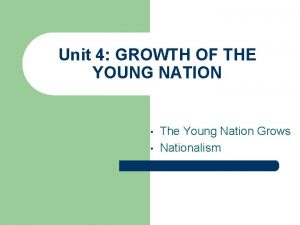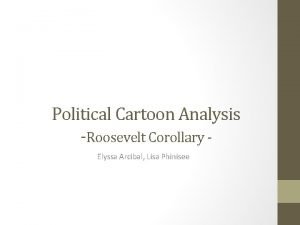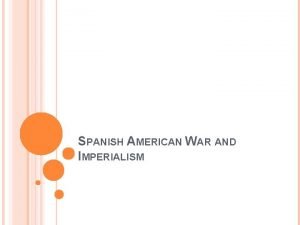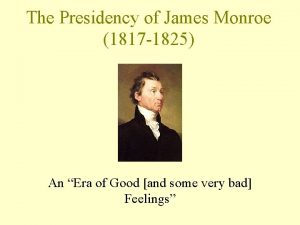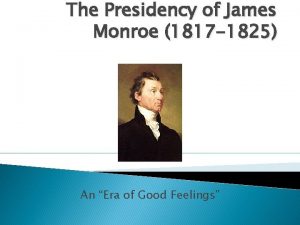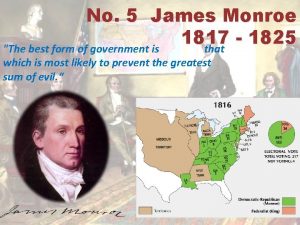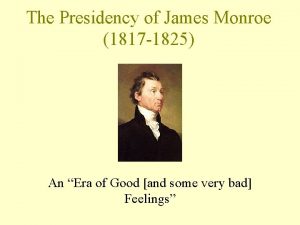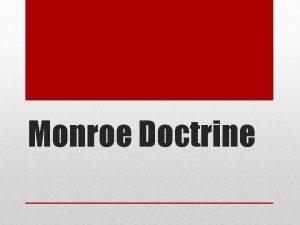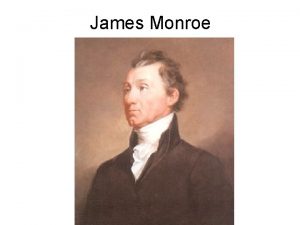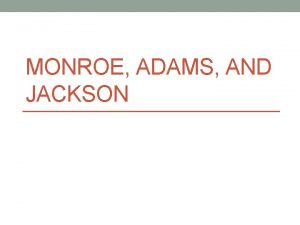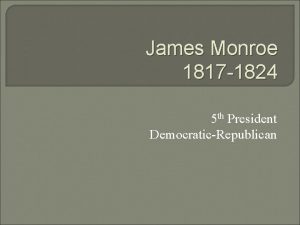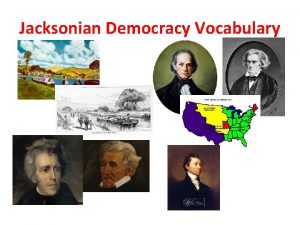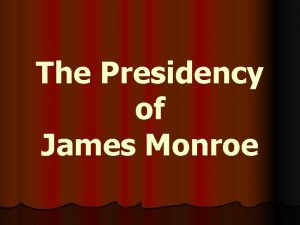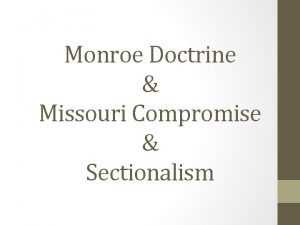Monroe Doctrine James Monroe President 1817 1825 1817














- Slides: 14

Monroe Doctrine James Monroe, President: 1817 - 1825

1817 - 1825… n n A spirit of nationalism swept the nation, following the War of 1812 Painted with the term, “Era of Good Feelings” Division and disagreements found little expression in political life during these years Party competition virtually disappeared

But…beneath the surface n n n Social and political divisions teamed. James Madison had secured the presidential nomination for his Secretary of State, James Monroe. Despite Northern impatience with the socalled Virginia Dynasty, Monroe won with 183 ballots in the electoral college.

n n n It seemed at first that Monroe himself would break the tradition that Secretaries of State from Virginia would follow their presidents into office. He chose John Quincy Adams as his Secretary of State. John C Calhoun as Secretary of War.

n n His other appointments included a varied mix of appointees: Northerners and Southerners, Federalists and Republicans Men who possessed varied interests and who came from all sections of the country Monroe set a presidential precedent by embarking on a “Good Will” Tour through the country Things looked GREAT! People felt good about this era

Meanwhile…. . in Florida n n In 1817, Adams entered into negotiations with Luis de Onis in hopes of resolving a dispute over the annexation of West Florida and gaining the entire colony for the U. S. General Andrew Jackson had orders from Secretary of War Calhoun to “adopt the necessary measures” to put a stop to Seminole Indian raids.

So Jackson… n n Invaded Florida in 1818 and seized the Spanish forts: St. Marks and Pensacola Ordered the hanging of two British subjects, charging them with supplying Indians with weapons and inciting them to hostilities.

Adams maintained n n n U. S. government should assume the responsibility, seeing it as a chance win an advantage in negotiations with Spain The U. S. was “only defending itself” from raids and might have to “take further steps” if the raids did not stop. These actions and veiled threats set the scene for the Adams-Onis Treaty of 1819

Adams-Onis Treaty n n n U. S. gave up claims to Texas Spain gave up all of Florida and all possessions in the Northwest Result: A transcontinental treaty.

Meanwhile…to the South: n n n The Spanish Empire, in its death throes, endured numerous revolutions in five Central and South American Spanish colonies. U. S. declared “neutrality” and in so doing recognized and gave legitimacy to the insurgent rebels’ status; thus, Spain also had to acknowledge them as revolutions, not just uprisings On the Q-T, the U. S. sold ships, weapons, and supplies to rebel forces and then established diplomatic relations with the five new nations

Then came the announcement n n In President Monroe’s 1823 annual message to Congress, he introduced the Doctrine that would forever bear his name He, in effect, “served notice” on European nations that the United States would no longer tolerate further colonization or puppet monarchs in the Western Hemisphere

…as stated by Monroe

What did he say? What did he mean?

What Did the U. S. Hope to Accomplish? n n n The people of Latin America would rally and resist foreign intervention The people of the U. S. would respond with renewed nationalism and result in a byproduct of economic and business revival The Monroe Doctrine would establish the idea of American leadership and predominance among world leaders across the Atlantic Ocean.
 Monroe doctrine
Monroe doctrine Monroe doctrine
Monroe doctrine Latin americans in france
Latin americans in france Monroe doctrine cartoon meaning
Monroe doctrine cartoon meaning Whats monroe doctrine
Whats monroe doctrine What was this
What was this Monroe doctrine
Monroe doctrine The monroe doctrine what ideas did the measure contain?
The monroe doctrine what ideas did the measure contain? Monroe doctrine political cartoon meaning
Monroe doctrine political cartoon meaning Monroe doctrine questions
Monroe doctrine questions Monroe doctrine and manifest destiny
Monroe doctrine and manifest destiny Martin van buren political party
Martin van buren political party Monroe doctrine
Monroe doctrine Political cartoon roosevelt corollary
Political cartoon roosevelt corollary What is this
What is this

